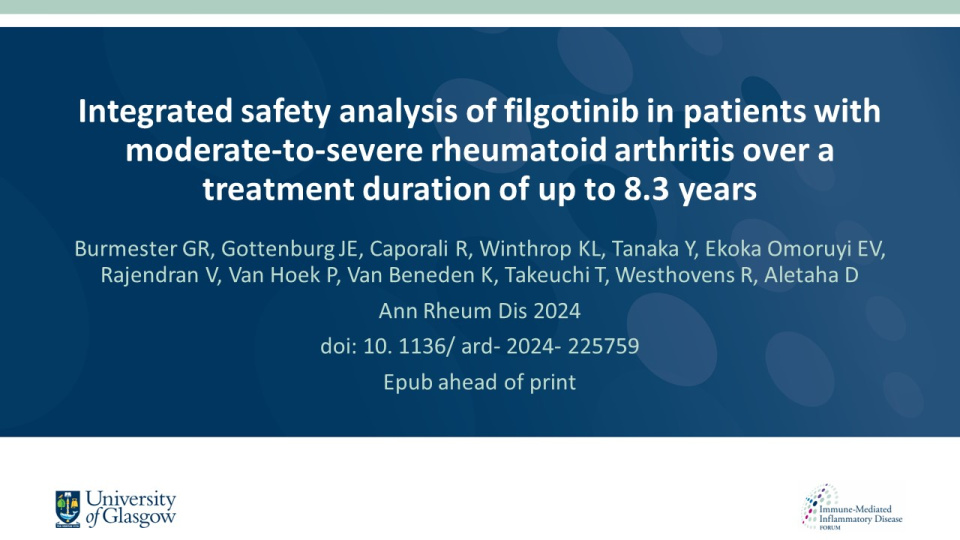Integrated safety analysis of filgotinib in patients with moderate-to-severe rheumatoid arthritis over a treatment duration of up to 8.3 years
Ann Rheum Dis 2024;0:1–8 doi: 10.1136/ard-2024-225759 Epub ahead of print
Burmester, et al. found that long-term filgotinib exposure was well tolerated in patients with moderate-to-severe active RA, with a stable rate of TEAEs over time. However, potential dose-dependent relationships for herpes zoster infections, malignancies and all-cause mortality were observed in patients aged ≥65 years, indicating the potential impact of age on the safety profile of Filgotinib. Therefore, some patients aged ≥65 years may benefit from the filgotinib 100 mg dose option.
Data from seven clinical trials (NCT01888874, NCT01894516, NCT02889796, NCT02873936, NCT02886728, NCT02065700, and NCT03025308) were integrated to evaluate the long-term safety of Filgotinib. The analysis included patients receiving filgotinib 100 mg or 200 mg daily, with treatment durations up to 8.3 years.

